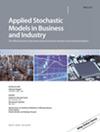Renewable Energy Investments, Support Schemes and the Dirty Option
IF 1.3
4区 数学
Q3 MATHEMATICS, INTERDISCIPLINARY APPLICATIONS
引用次数: 0
Abstract
In a real options framework, we analyze the behavior of a large energy producer who can invest in a portfolio of Renewable Energy Source (RES) and dirty energy source. Competitive fuel prices challenge the investments in RES. Given a budget constraint, the agent allocates the optimal capacities of both energy instalments and selects the optimal investment time. We use the model to compare the effectiveness of classical support schemes such as Feed-in Tariffs or Green Certificate with respect to forms of taxation of dirty technology such as Carbon Taxes or Carbon Permits. This paper proposes a conceptual framework and qualitative analysis to understand which support system enhances the attractiveness of renewable energy investments.
可再生能源投资,支持计划和肮脏的选择
在实物期权框架下,我们分析了一家大型能源生产商的行为,该能源生产商可以投资于可再生能源(RES)和污染能源的投资组合。竞争激烈的燃料价格挑战了可再生能源的投资。给定预算约束,代理分配两种能源的最优产能并选择最优投资时间。我们使用该模型比较了传统支持方案(如上网电价或绿色证书)与碳税或碳许可证等污染技术税收形式的有效性。本文提出了一个概念框架和定性分析,以了解哪些支持系统增强了可再生能源投资的吸引力。
本文章由计算机程序翻译,如有差异,请以英文原文为准。
求助全文
约1分钟内获得全文
求助全文
来源期刊
CiteScore
2.70
自引率
0.00%
发文量
67
审稿时长
>12 weeks
期刊介绍:
ASMBI - Applied Stochastic Models in Business and Industry (formerly Applied Stochastic Models and Data Analysis) was first published in 1985, publishing contributions in the interface between stochastic modelling, data analysis and their applications in business, finance, insurance, management and production. In 2007 ASMBI became the official journal of the International Society for Business and Industrial Statistics (www.isbis.org). The main objective is to publish papers, both technical and practical, presenting new results which solve real-life problems or have great potential in doing so. Mathematical rigour, innovative stochastic modelling and sound applications are the key ingredients of papers to be published, after a very selective review process.
The journal is very open to new ideas, like Data Science and Big Data stemming from problems in business and industry or uncertainty quantification in engineering, as well as more traditional ones, like reliability, quality control, design of experiments, managerial processes, supply chains and inventories, insurance, econometrics, financial modelling (provided the papers are related to real problems). The journal is interested also in papers addressing the effects of business and industrial decisions on the environment, healthcare, social life. State-of-the art computational methods are very welcome as well, when combined with sound applications and innovative models.

 求助内容:
求助内容: 应助结果提醒方式:
应助结果提醒方式:


